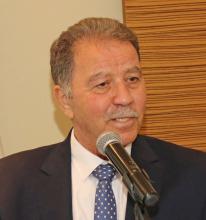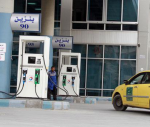You are here
Is Jordan on Track to Achieve Food Security
Jun 18,2023 - Last updated at Jun 18,2023
COVID-19 constituted a warning bell for countries and people worldwide; it highlighted the importance of intensifying efforts to achieve food security and to further international and regional cooperation to cement the bonds between water, energy, and food. Moreover, achieving food security constitutes a prerequisite and a condition precedent for achieving and sustaining national and regional security. The Russian-Ukrainian war came to confirm this, not only in terms of food availability but also in terms of access to food, as many exporting countries banned exporting some food commodities, in addition to the very high costs of transportation, insurance and the resulting shortage of supply that affected the nations of the world, including some rich countries. In addition to the previous factors, the Kingdom's hosting of about 1.3 million Syrian citizens, including more than 671,000 refugees registered with the United Nations, only about 10% of whom live in refugee camps, has increasingly negative repercussions in light of the continuation of the Syrian crisis. The great burdens borne by Jordan due to successive waves of refugees exceed the capabilities of its limited food and water resources which in turn was on the burden of agriculture., The succession of events in Syria has affected the closure of Jordan's land borders with Syria, which reflected negatively on the Jordanian agricultural sector in terms of Jordanian agricultural exports to Syria, Lebanon, Turkey, some European Union countries and Eastern European countries.
Under its wise leadership, Jordan took the necessary measures early on to hedge and reduce the negative impacts on families, communities, and the national economy in general, which directly contributed to improving the resilience and sustainability of food security. Jordan's response and coping strategies with the crises have served as a model in terms of having sufficient food stocks for an extended period and sustaining the levels of production and supply chains.
In this regard, Jordan has exerted intensive efforts and has taken significant steps to provide adequate and healthy food for all its population at all times, including:
- Adopting the holistic approach of food security, which emphasizes that local production, which, despite its importance, constitutes only one of the components of achieving food security, other components which are equally important include trade, supply chains, storage, processing, markets, food quality and safety, food security governance, and others.
- Involving all stakeholders from the public sector, the private sector, civil society and the international community in the consultations, deliberations and the formulation of decisions related to food security.
- The formation of the National Committee for Food Security, chaired by the Minister of Agriculture and with the membership of representatives of the public sector, the private sector, civil society organizations and international institutions.
- Preparing and adopting the first National Strategy for Food Security 2021-2030 and the action plan 2022-2024, in addition to adopting pathways to transform food systems and currently working on preparing a roadmap to transform those systems into more efficient and resilient systems.
- Working on establishing the Higher Council for Food Security and the Food Security Information System, which is expected to be completed within the next three months.
- Intensive work started through the committee formed under the chairmanship of the Ministry of Agriculture and the membership of United Nations organizations, the Ministry of Planning and International Cooperation and the Department of Statistics to prepare an action plan to improve Jordan's position in global food security indicators by preparing an analytical study of the relevant indicators. At the beginning of 2022, the government launched the National Plan for Sustainable Agriculture 2022-2025, which came to enhance food security in Jordan and resulted in the provision of financing of 110 million dinars for food security projects, especially those related to the use of agricultural technology, the provision of irrigation water and improving livestock production and projects to empower women and unemployed youth, which provided about 12,000 additional job opportunities.
- Launching the No Food Waste Initiative, where it is estimated that the per capita food waste mounts to 93 kg yearly, that is equivalent to wasting about 930 thousand tons annually at the country level, this also entails wasting large amounts of water, energy, effort and money, the initiative aims to halve waste by 2030.
- Working to make Jordan a Regional Hub for Food Security, the hub will work to maximize the comparative advantage of the participating countries in terms of the availability of raw materials, economy of scale, the advantage of the central location and proximity of Jordan, the availability of infrastructure and the investment environment, in order to store, manufacture and distribute food and manufacture production inputs such as fertilizers, pesticides, seeds and irrigation systems, and provide a modern regional transport fleet, transfer and dissemination innovation and technology and facilitate intra-trade between the participating countries.
It is worth noting that Jordan has been able to achieve a high rate of food self-sufficiency that reached 61.4% in 2021, in addition to achieving full or high rates of self-sufficiency for many commodity groups such as vegetables, fruits, poultry meat, eggs, olive oil and milk. This is despite the significant increase in the population due to the Syrian refugee and the decrease in the quantities of fresh water available for agriculture from 475 million cubic meters in 2013 to 367 million cubic meters in 2021.
Moreover, Jordan has made remarkable progress on the Global Food Security Index issued by the Economist Intelligence Unit, where Jordan's position improved from 62nd place in 2020 to 47th place in 2022 out of 133 countries in the world. However, there are some uncomfortable indicators of food security conditions in Jordan, especially the obesity in adults, the prevalence of anaemia in women and the prevalence of undernourishment indicators, which reached 35.5%, 37.7% and 16.9% respectively.
In this regard, it should be noted that the Ministry of Agriculture is currently reviewing the mechanisms and inputs used for calculating these figures in cooperation with the United Nations Organizations that issue them and has assigned a special team to check these figures.
Furthermore, Jordan is undertaking intensive efforts in cooperation with some international organizations such as the World Bank, the World Food Program, the Food and Agriculture Organization of the United Nations and distinguished international universities in the field of food security such as the University of Wageningen and the University of Oxford to map and transform the prevailing food systems into more efficient, resilient and sustainable systems. The preparation of the food system transformation road map which will be available next month constitutes a pilot case at the regional and international levels.
Achieving the goals and targets set in the food security strategy requires providing a conducive environment and the necessary requirements for that, foremost of which is the provision of the necessary funding for the establishment and the operationalization of the Higher Council for Food Security and other ministries directly related to food security, such as the Ministry of Agriculture, whose capital budget for the year 2023 amounted to about US $32 million only, it goes without saying that such a budget will not achieve the desired increases in production and productivity of agricultural and agro-food commodities.
It is also crucial for the Higher Council for Food Security to start exercising its functions as soon as possible, which constitute the oversight, supervisory and coordination to achieve its assigned functions and mandate, which in turn will facilitate the achievement of other key initiatives related to minimizing food waste, establishing the Regional Hub for Food Security, coordinating and cohering policies and efforts of the public and private sectors, and providing the necessary funding for food security projects.
Maintaining the momentum of the past two years is both an opportunity and a challenge for the government, the private sector and the international community to work together and build effective partnerships to achieve food security, which will ultimately constitute a direct contribution to the optimal and efficient use of water and energy and reduce the effects of climate change, hence, contribute to achieving the SDG targets and bring security and prosperity to the people of Jordan and the region at large.













